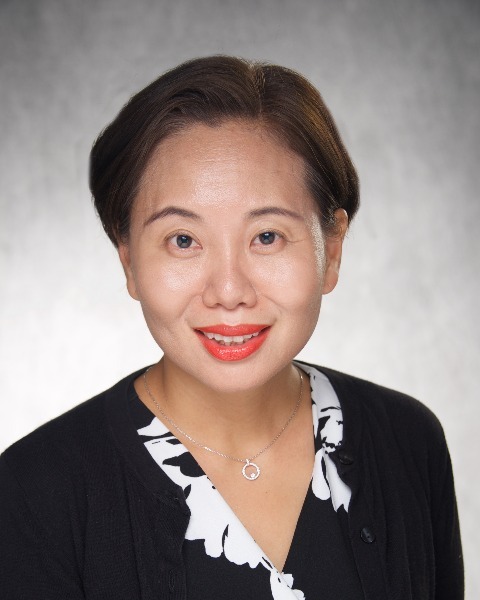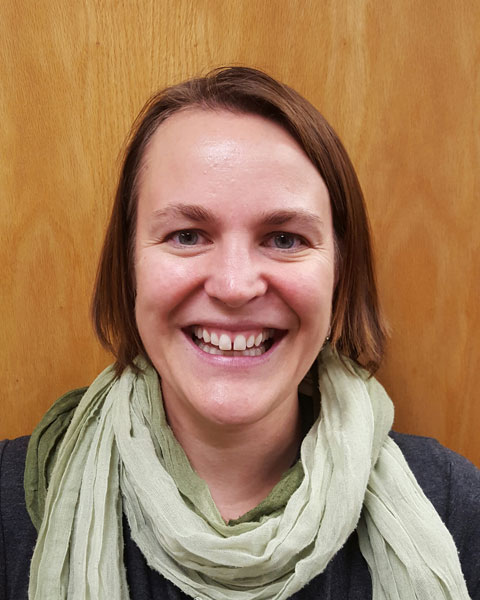(Re)habilitation and Counseling (C)
MM201 - Tinnitus Education in Adult Aural Rehabilitation Programs

Eun Kyung Jeon, AuD, PhD
Clinical Assistant Professor
The University of Iowa
The University of Iowa
Iowa City, IowaDisclosure(s): No financial or nonfinancial relationships to disclose.

Ann Perreau, PhD
Associate Professor, Audiologist
Augustana College
Coralville, IowaDisclosure(s): No financial or nonfinancial relationships to disclose.
- RT
Richard Tyler, PhD
Professor-Otolaryngology-Head and Neck Surgery
The University of Iowa
University of Iowa
Iowa City, IowaDisclosure(s): No financial or nonfinancial relationships to disclose.
Lead Presenter(s)
Contributor(s)
Our local senior center sessions for adult aural rehabilitation reveal a significant demand for tinnitus education, with attendees reporting benefits in tinnitus management. We discuss our tinnitus education sessions, which cover foundational knowledge of tinnitus, counseling, and sound therapy based on the Tinnitus Activities Treatment, providing valuable resources for public and patient education while enhancing audiology students' outreach experiences. Additionally, we share insights into tinnitus treatment tools and assess the effectiveness of our initiatives in deepening the understanding of tinnitus management.
Summary:
Tinnitus, a common auditory condition affecting a significant portion of the population, has gained increasing attention in recent years. Statistics reveal its prevalence, with 15 in 100 individuals experiencing tinnitus, while 1 in 100 contend with troublesome tinnitus. Among those aged 60 or older, the occurrence rises to 30 in 100. Globally, 14.4% of people grapple with tinnitus (Jarach et al., 2022). This Mini Module explores the significance of addressing tinnitus, especially within the context of hearing loss, where a staggering 85% of our clinic's patients with hearing loss are affected by tinnitus.
At our local senior centers, we have been conducting adult education sessions, focusing on two topics: "Hearing Loss and Amplification Informational" and "Tinnitus Education". Remarkably, the latter has garnered a larger attendance, indicating a pressing need for tinnitus-related education. Feedback from attendees has been overwhelmingly positive, with many reporting newfound empowerment in managing their tinnitus. Despite the widespread availability of hearing assessments and diverse hearing aids, access to comprehensive tinnitus education and counseling remains rare from the patient's standpoint.
This module will discuss our tinnitus education sessions provided three times per year with audiology graduate students as a part of their adult aural rehabilitation rotations. We will discuss specific protocols and how these sessions serve as a valuable resource for public education, patient support, and the education of Audiology students, while also contributing to clinic management. The tinnitus education session spans two hours, with the first hour providing foundational knowledge on ears, hearing, and their relationship with tinnitus. The second hour explores deeper into the Tinnitus Activities Treatment, encompassing counseling and sound therapy discussions.
Additionally, we will provide insights into the tinnitus treatment tools available and share our clinic's experience in fitting the Lenire tinnitus treatment system. Moreover, we will present the results of participants' exit surveys from our tinnitus education sessions, with a particular focus on assessing the effectiveness and impact of our educational initiatives in empowering individuals to gain a deeper understanding of tinnitus management. We hope that this Mini Module will prove valuable for those who are interested in exploring public and patient education sessions on tinnitus, benefiting both individuals affected by tinnitus and providing enriching outreach experiences for audiology students.
Learning Objectives:
- Demonstrate the knowledge and skills necessary to develop and deliver effective tinnitus education sessions, encompassing foundational principles, counseling techniques, and sound therapy discussions, with a focus on the Tinnitus Activities Treatment framework
- Assess the effectiveness of tinnitus education initiatives by interpreting and analyzing participants' exit survey results, thereby empowering them to contribute to more informed tinnitus management practices and strategies
- Adapt tinnitus education sessions to meet local needs effectively and employ outcome questionnaires for evaluating the effectiveness of tinnitus management strategies.
